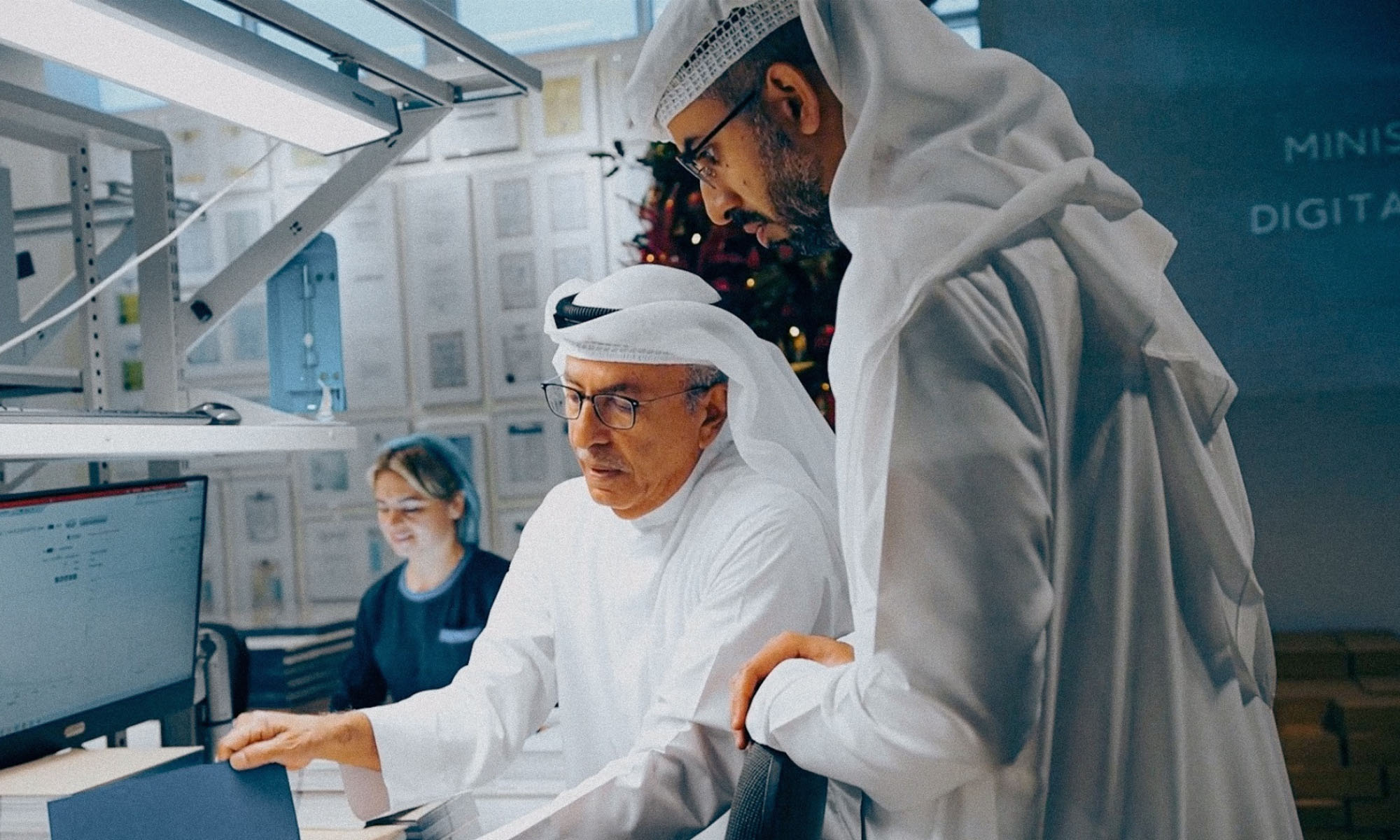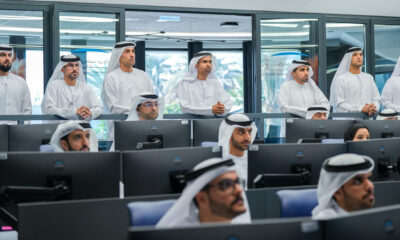News
Advanced Tech Adoption & Innovation Are UAE’s Top Priority
The United Arab Emirates is actively seeking to overcome technological challenges and will explore futuristic approaches to improve the digital economy.

Omar Sultan Al Olama, the UAE’s Minister of State for Artificial Intelligence, Digital Economy, and Remote Work Applications, has explained that the adoption of advanced technologies is a top priority for the region, as the Emirates continues to push forward with its vision of an advanced digital economy through innovation. Although there are many challenges to overcome, the UAE is making incredible progress across multiple scientific and technological sectors, and has embraced a future-centric approach to developing and overhauling its economy.
Omar Sultan Al Olama recently visited the Industrial Innovation Group (IIG), a leading security printing, biometric and global systems innovator, headquartered in Sharjah. The Minister’s mission was to explore the group’s scientific research lab, uncover new trends in advanced technology, and discuss potential collaboration opportunities.
Also Read: Saudi Firm ACWA Power To Build 1.5 GW Wind Farm In Uzbekistan
The Minister of State for all things digital noted that when it comes to technology, the most innovative and forward-thinking tools must be deployed to ensure safety, quality, and reliability. Omar Sultan Al Olama praised the Industrial Innovation Group for its success in building a sizable operational base, with 263 centers for passports around the globe and 367 centers for licenses. In addition, the IIG group’s 400 intellectual property assets will help the UAE to lead in security documents and technology solutions worldwide.
The Industrial Innovation Group is the first group in the MENA region to establish real industrial production and implement system integration. IIG is the only company in the field of production of identification documents and security printing worldwide that does not depend on third-party technologies in its activities.
News
Influencer Growth Fuels Saudi Creator Economy Surge
The Kingdom’s creator economy grew over 32% in Q1 2025, fueled by TikTok, UGC, and cost-per-action (CPA) influencer models.

Saudi Arabia’s creator economy saw a significant 32.37% growth in the first quarter of 2025, driven by an uptick in influencer marketing, content-driven e-commerce, and the increasing influence of user-generated content (UGC). These insights come from a recent study by Admitad and the Stllr Network.
Much of this momentum is coming from video-based platforms, where brands are leaning on creators who feel more relatable than polished ad campaigns. The trend shows a clear preference for authenticity, as audiences gravitate toward content that feels real and personal.
Mohannad Alzahrani, Co-founder and VP KSA of Stllr Network, highlighted the shift: “The rise of user-generated content (UGC) is changing the way brands engage with consumers. Audiences trust real creators more than traditional advertising, making UGC a key driver of authenticity and sales”.
TikTok remains the dominant platform in this space, reportedly reaching 88% of the Saudi population. It also showed the sharpest rise in influencer-led transactions. Other platforms followed with solid, if less dramatic, growth: X was up 17%, Instagram increased by 12%, and Telegram by 10%.
In terms of content niches, beauty led the pack with a 56% growth rate, followed by lifestyle at 45.8% and fashion at 18.2%. Tech content also showed healthy traction at 10.6%, while entertainment, food, fitness, parenting, and gaming posted smaller — but still positive — gains.
Also Read: Top E-Commerce Websites In The Middle East In 2025
The report analyzed more than 300,000 influencer-driven purchases. These efforts translated into a 15% year-on-year jump in Gross Merchandise Value (GMV) and a 5% increase in the number of orders in 2024. Influencers themselves are seeing the benefit, with average order values hitting $54 and creator earnings rising by 14%.
A noticeable trend is the move away from fixed-rate deals. More influencers in Saudi Arabia are embracing hybrid compensation models — especially cost-per-action (CPA) setups that tie their earnings directly to performance.
As Anna Gidirim, CEO of Admitad, explains, “The CPA model brings much-needed transparency to influencer marketing. Brands only pay for actual results, and influencers benefit by securing long-term partnerships while offering their audiences exclusive promo codes and special discounts”.
However, the ecosystem still shows a gender imbalance. The data indicates that 63% of creators in Saudi Arabia are men, while women account for just 37%.























